Quantum Computing Explained
Quantum Computing Explained , Technology that Change Everything
MICROBIOLOGYTECHNOLOGY
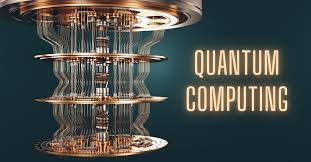

.
Quantum Computers Explained: The Technology That Could Change Everything
Introduction
Quantum computers are no longer confined to theoretical labs or sci-fi movies—they’re becoming a reality with the power to revolutionize our world. Unlike traditional computers that rely on bits to process data as 0s or 1s, quantum computers use quantum bits (qubits) and the strange rules of quantum mechanics to perform calculations at mind-blowing speeds. But what exactly are quantum computers, how do they work, and why should you care? In this blog, we’ll break it all down, exploring their mechanics, applications, challenges, and future potential. Get ready to step into the quantum realm!
What Is a Quantum Computer?
At its core, a quantum computer is a machine that harnesses the principles of quantum physics to process information. Classical computers use bits as their smallest unit of data—either a 0 or a 1. Quantum computers, however, use qubits, which can exist in a state of 0, 1, or both simultaneously due to a property called superposition. This ability, combined with entanglement and interference, allows quantum computers to tackle problems that are practically impossible for even the most powerful supercomputers today.
Think of it like this: while a classical computer solves a maze by trying one path at a time, a quantum computer can explore all paths at once. This makes them ideal for complex tasks like cracking codes or simulating molecular structures.
How Is It Different from Classical Computing?
Let’s consider an example: finding one value in an unsorted database of a million entries.
A classical computer would need to check each entry one by one—on average, it would take about 500,000 checks.
A quantum computer using Grover’s algorithm can find the same value in roughly 1,000 steps.
That’s a glimpse into the power of quantum computing. But the real excitement lies in problems that classical computers simply can’t solve in a practical timeframe, like modeling large quantum systems or optimizing global logistics networks.
Real-World Applications of Quantum Computing
The potential of quantum computers is staggering. Here are some ways they could transform industries:
Cryptography: Quantum computers could break current encryption methods (like RSA) in minutes, forcing a rethink of cybersecurity. They could also create unbreakable quantum encryption.
Healthcare: By simulating molecular interactions at the quantum level, they could accelerate drug discovery, leading to faster treatments for diseases like cancer or Alzheimer’s.
Artificial Intelligence: Quantum computing could supercharge AI by optimizing machine learning models and processing massive datasets in seconds.
Climate Science: Modeling complex climate systems or optimizing renewable energy grids could become more precise, aiding the fight against climate change.
Finance: Portfolio optimization, risk analysis, and fraud detection could benefit from quantum speed and accuracy.
Big players like IBM, Google, Microsoft, and quantum-focused startups like D-Wave and Rigetti are already building prototypes, proving the technology’s real-world promise.
Challenges and limitations
Stages Despite the hype, quantum computing is still in its early. Major hurdles include:
Decoherence and Noise: Qubits are incredibly sensitive to external disturbances, which can cause them to lose their quantum state quickly.
Stability: Qubits are incredibly fragile. Even tiny vibrations, temperature changes, or electromagnetic interference can cause "decoherence," where qubits lose their quantum state. Most systems operate at near-absolute zero (-459°F) to keep them stable.
Error Rates: Quantum computations are prone to errors, and correcting them requires sophisticated techniques that aren’t fully developed yet.
Scalability: Building a quantum computer with thousands of qubits is a monumental engineering challenge. Current systems, like Google’s 72-qubit Bristlecone, are still experimental.
Cost: The hardware, cooling systems, and expertise needed make quantum computers prohibitively expensive—millions of dollars for a single machine.
These roadblocks mean practical, large-scale quantum computing is still a decade or more away, though progress is accelerating.
The Race for Quantum Supremacy
In 2019, Google claimed “quantum supremacy”—a milestone where a quantum computer outperformed a classical supercomputer on a specific task. Their 53-qubit Sycamore processor solved a problem in 200 seconds that would’ve taken the world’s fastest supercomputer 10,000 years. While IBM disputed the claim, arguing their classical systems could do it faster, the event sparked global excitement.
Quantum supremacy doesn’t mean quantum computers are better at everything—it’s about proving they can excel in niche areas. As hardware improves, we’re inching closer to practical supremacy across broader applications.
What’s Next for Quantum Computers?
Looking ahead, quantum computing could reshape society by 2030 or beyond. Experts predict:
Commercial Availability: Companies might offer cloud-based quantum computing services, making the tech accessible to businesses and researchers.
Hybrid Systems: Quantum and classical computers could work together, combining quantum speed with classical reliability.
Everyday Impact: From personalized medicine to ultra-secure communications, quantum advancements could trickle down to daily life Governments and tech giants are pouring billions into quantum research. The U.S., China, and the EU are in a heated race to dominate this frontier, seeing it as critical to economic and military power.
Conclusion:
Quantum computers are more than just a tech buzzword—they’re a glimpse into a future where the impossible becomes possible. While challenges remain, their ability to solve complex problems could unlock breakthroughs in science,
medicine, and beyond. We’re still in the early days of this quantum revolution, but one thing’s clear: the world is about to get a lot more interesting. It’s not just about doing things faster—it’s about doing things classical computers will never be able to do. As quantum computing matures, it could redefine everything from scientific discovery to business strategy.
SOURCES : IEEE Xplore AND Quanta Magazine
AUTHOR: SNEHA SHAH ,SCIENCE STUDENT
#IEEEXplore #quantamagzine






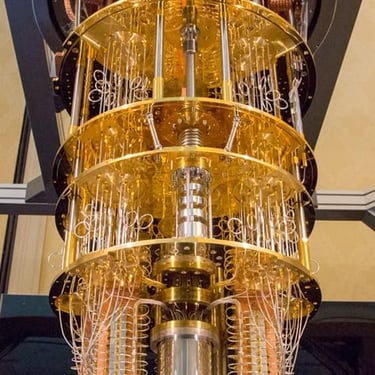




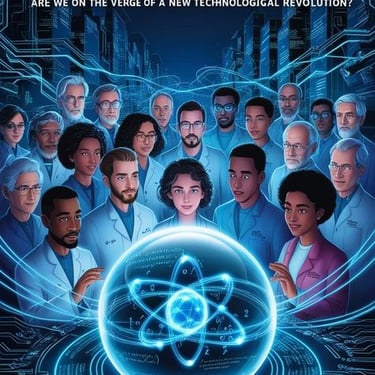
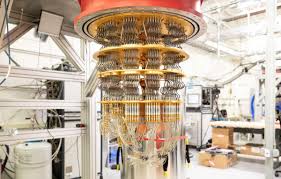
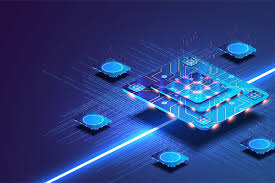





Important Disclaimer ::
The content published on LAB CHRONICALS is for informational and educational purposes only. We gather and share science-related news, research, and discoveries from various credible sources. While we strive to ensure accuracy, we do not claim ownership of any third-party content, nor do we guarantee the completeness or reliability of the information provided. All trademarks, copyrights, and intellectual property rights belong to their respective owners. If you believe that any content infringes on your rights, please contact us for prompt removal or correction. The founder and contributors of LAB CHRONICALS are not responsible for any copyright claims, misinterpretations, or disputes arising from shared content. Readers are encouraged to verify details from original sources before making any conclusions. By using this website, you agree to this disclaimer and acknowledge that LAB CHRONICALS serves only as a platform for knowledge dissemination
